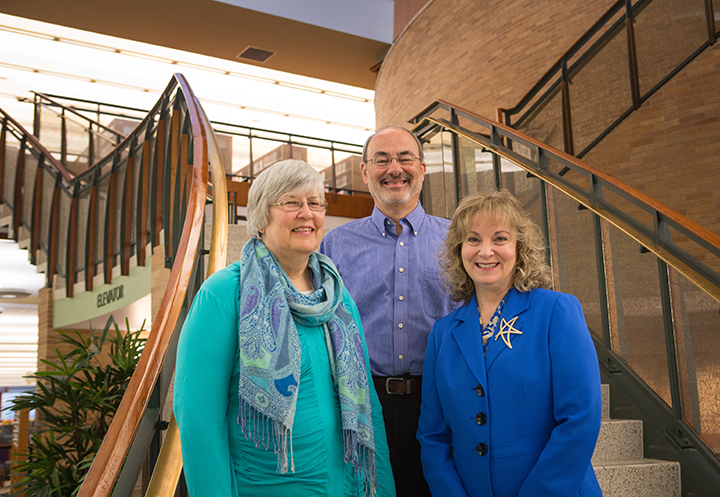Hamilton County Democrat candidates excited about prospects of growing their party locally despite past results
By Adam Aasen
Waving a flag for the Democratic Party can be a lonely endeavor in the heavily Republican hot bed of Hamilton County.
Jim Blessing, a longtime Carmel democratic activist, compares it to rooting for the Chicago Cubs, who haven’t won a World Series since 1908.
(Indeed, Blessing roots for both teams and so he definitely understands heartbreak.)
Cubs fans and Carmel Democrats hold out hope again and again that this time things will be different. Just a little luck is needed.
Meanwhile, supporters envy the nearby St. Louis Cardinals – or in Carmel’s case, the Marion County Democratic Party. They compete every year and once and a while they take home the top prize. Something these underdogs keep dreaming about.
‘An endangered species’
Yes, many people might not believe it but there are Democrats in Hamilton County. And they are excited and enthusiastic about their chances in the next election, due mostly to Carmel’s possibly changing demographics.
These Carmel Democrats are making it their goal to introduce themselves to the public, to let people know they aren’t that different from anybody else.
“Yeah, they don’t have two heads and three arms and that sort of thing,” joked Mike Claytor, a Carmel resident and Democratic candidate for state auditor. “But we are an endangered species.”
Democrats have not historically performed well in the county. In Carmel, a Democrat hasn’t held local office since the 1950s. And Hamilton County hasn’t voted for a Democrat for president since 1912. Woodrow Wilson received a plurality of votes but not a majority because the Republican vote was split between Teddy Roosevelt and William Howard Taft.
“It’s a very red county,” said Rosemary Dunkle, president of the Hamilton County Democrats local club chapter. “We have made inroads, but it is just so overwhelmingly Republican that it can be hard to get our candidates elected.”
The only way to fight the storm is to raise awareness, which can be difficult when you don’t have the same fundraising base as your opponents. That’s why Dunkle suggests a grassroots approach that builds over time.
No need for conversion
But seeds might be in place for a shift in allegiances locally. As Carmel grows in population, the demographics might shift. J.D. Ford, a 31-year-old Democrat running against State Sen. Mike Delph, said he believes in a dynamic change in the area.
“A good portion of people living in Carmel is young professionals moving into the new apartments and condos,” he said. “And that demographic is growing and they are excited to find out about what the Democratic Party is doing here.”
While the area remains fiscally conservative, Dunkle said she believes there are many people living in Carmel who are starting to agree more with the Democrats, especially on social issues such as gay marriage.
“They might agree with the Democrats on some issues, but they vote Republican because they say, ‘My grandparents were Republicans. My parents are Republicans,’” she said.
Claytor said he thinks Democrats can win over those voters without trying to “convert them” to a new party. Claytor points to President Obama’s win of the Hoosier State in 2008 as proof that Democrats can win over conservative voters if they have the right candidate.
“He didn’t convert those Republicans into becoming Democrats,” he said. “They were interested in him as a candidate.”
And there may be no better proof than Carmel Democrat Glenda Ritz, who beat incumbent Tony Bennett to become the current Indiana Superintendent of Public Instruction.
Ritz said her campaign showed it was possible to make significant voter gains in Hamilton County by building a grassroots organization, and by focusing less on party lines and more on particular issues.
“Policy does matter, and voters have proven that,” she said.
Ritz also thinks education is a winning topic for Democrats, and she said the goals should be to focus on gaining more local control for school decisions, focusing on the need for quality teachers and maintaining respect for educators working in the classrooms.
‘We have Midwest values’
Of course, attracting appealing Democratic candidates can be difficult. Often, there isn’t even a Democrat on the ballot in some races, including most Carmel City Council elections and the last two mayoral races.
David Russ, a local business development manager, said he got tired of going to the polls and never seeing a Democrat on the ballot. It bothered him that the only other choice he had other than State Rep. Jerry Torr, a Republican, was a Socialist Party candidate.
“I decided to run because I don’t believe in supermajorities or unopposed elections,” he said. “I called and asked what I could do and I decided to get involved.”
One of the biggest challenges locally is changing people’s perceptions of the Democrats. Candidates say the Democrats in Hamilton County are different from Democrats in Marion County. With a larger affluent population, issues such as manufacturing unions or welfare programs aren’t as much of a focus. Most Democrats locally described themselves as fiscally conservative, socially liberal and open to bipartisan ideas.
“We live in Indiana, so we have Midwest values. We aren’t as far left as sometimes we are perceived by people,” Dunkle said.
Blessing said he believes the Democrats locally are far less extreme than their counterparts – even if public opinion might say otherwise.
“Well, if people get their main news about Democrats comes from watching Fox News, they would say that all Democrats are socialists and have extreme far-left views. That is obviously a falsehood,” he said. “In reality, it’s the national and state Republicans that have the extreme far-right views. Democrats are the moderate party and don’t require litmus tests. They don’t push people out of the party. The Indiana Democrats would not push a statesman like Richard Lugar out of the party and nominate someone like Richard Mourdock to replace him.”




